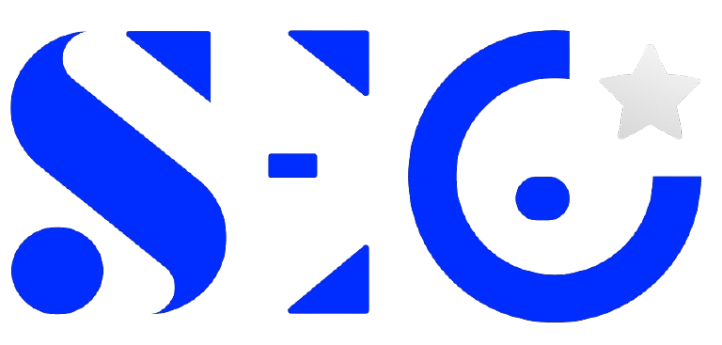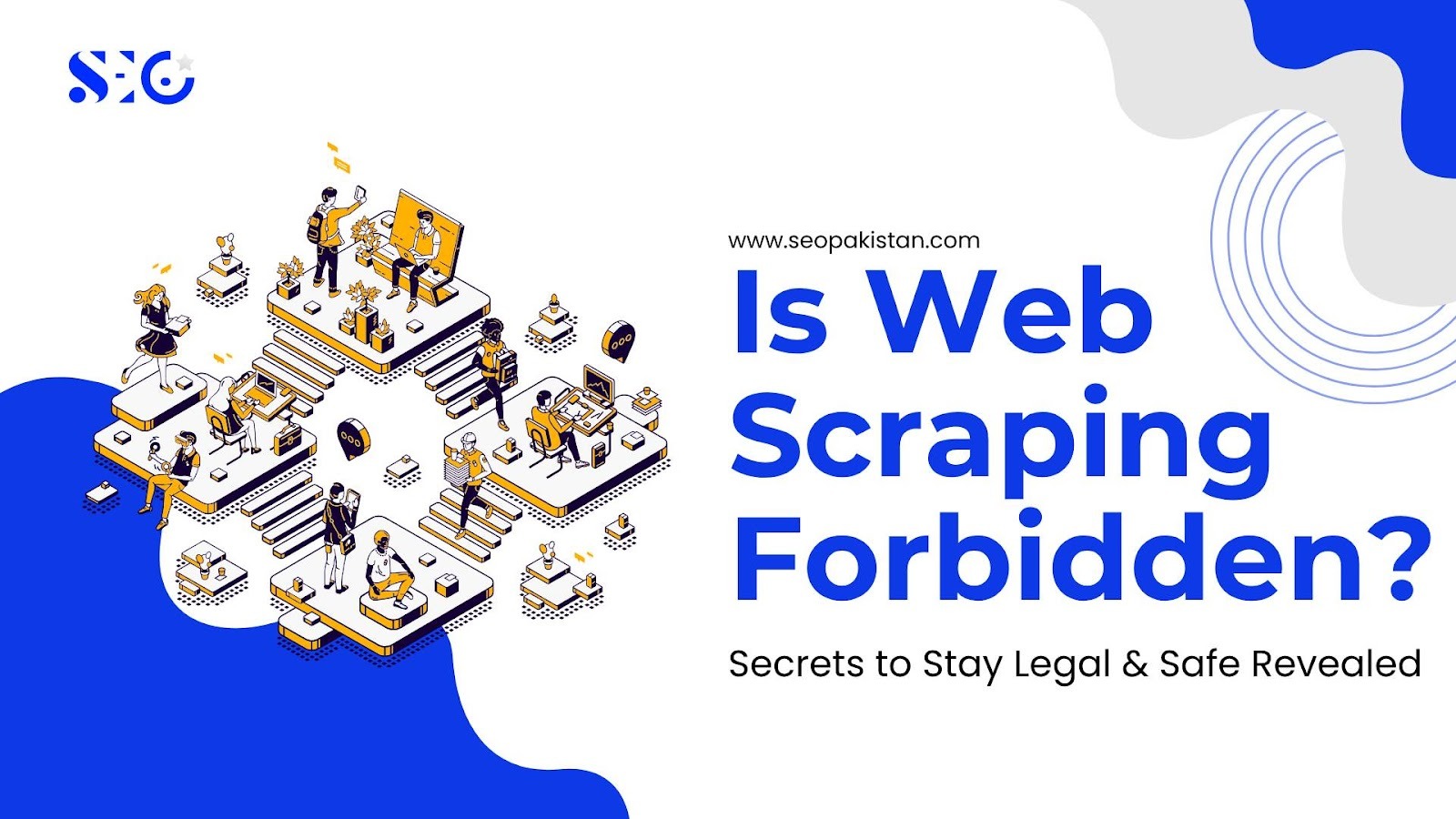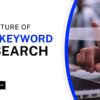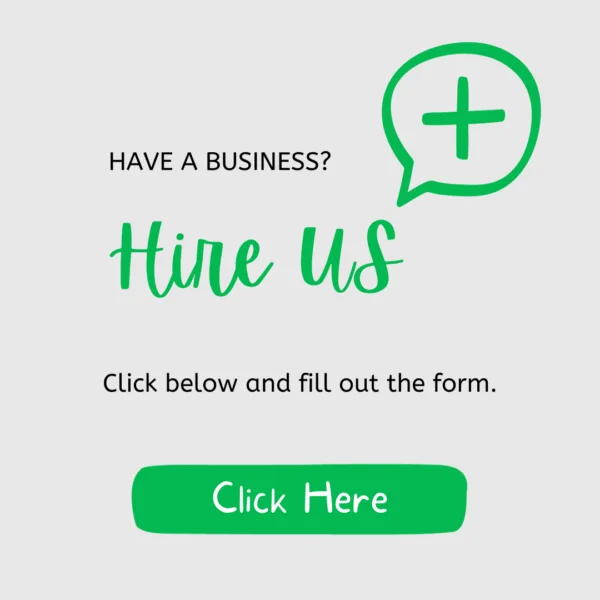You need to collect data to win in your market. Yet, as soon as you prepare to run a web scraper, a crucial question arises: “Is web scraping illegal or legal?” The answer depends on strict rules, the unwritten Code of Conduct that separates legal web scraping from high-risk, non-compliant practices. Use this professional guide to navigate the minefield and avoid activities deemed illegal.
The Great Ambiguity: Decoding “Forbidden” Data
Imagine you are ready to extract useful information for legitimate purposes like market analysis, lead generation, or research. Suddenly, you wonder: “Is scraping personal data or proprietary content allowed?” The answer: only if you remain within the boundaries set by privacy laws, website terms, and technological measures.
Take the best path before data scraping:
Instead of immediately scraping publicly available data, try these:
- Official APIs: Most websites offer structured access through APIs. This is the most reliable channel for legal web scraping, ensuring compliance with database rights and the Electronic Documents Act.
- Licensed Datasets: Consider purchasing datasets to avoid issues with extracting data from sites not meant for collection.
- Open Data Sources: Government and academic institutions often make publicly available personal data and anonymized information accessible for public interest or data mining projects.
If web scrapers must extract data from a public website, watch these two legal pillars:
- Access: Did you stay out of private areas? Many search engines only collect publicly available information. Any attempt to scrape behind authentication or paid walls is deemed illegal under laws like the Computer Misuse Act.
- Behavior: Did you act as a respectful guest? Web scraping legal boundaries require that you respect robots.txt files, honor rate limits, and avoid bypassing security or other technological measures.
| Status of Data | Legal Risk Profile | Recommendation |
| Public & Follows robots.txt | Low | Proceed with caution; honor strict rules, avoid disrupting the web server. |
| Public, but violates ToS | Medium (Civil Liability) | Watch for legal risks; use APIs or obtain professional legal advice. |
| Behind a Login (Private) | EXTREME (CFAA Violation) | FORBIDDEN. Never scrape authenticated or proprietary content. |
| Contains PII (GDPR/CCPA) | EXTREME (Privacy Violation) | FORBIDDEN. Scraping personal information or storing such information is illegal. |
Bottom line: Do not assume all available data is fair game. Scraping publicly available data for legitimate purposes still requires full compliance with privacy laws.
Why the Code is Law: Importance and Requirements

Staying within the law provides these advantages:
- Legal Peace of Mind: Operate without fear of being subject to the Electronic Documents Act or lawsuits resulting from web scraping illegal activities.
- Market Leadership: Use data scraping for lead generation, monitoring search engines, or tracking trends, while avoiding infringement on database rights and proprietary content.
- Uninterrupted Access: Adhering to strict rules guards against web server bans and drastic technological measures, like CAPTCHA.
- Brand Protection: Ensure your actions are aligned with ethical implications and free from incidents that might harm your business’s public interest.
- Better Data Quality: Scrape only what is needed from each data type and within the ethical and legal boundaries, rather than aimlessly scraping personal information.
Always stick to these three golden requirements:
- Personal Information Protection: The Zero PII Mandate means that any scraping of personal data must result in anonymization or immediate deletion to protect individuals and comply with privacy laws.
- Clear Authorization: Only collect data openly displayed on a public website. Never extract information through deceptive means.
- Thorough Terms Review: Scraping publicly should always begin with a check of the terms of service and robots.txt file. When unclear, seek professional legal advice.
The Seven Master Keys: Secret Best Practices No One Else Knows
Leading web scrapers rely on advanced strategies to stay compliant and ethical. Here are the secret keys that enable legal web scraping and protect your project from legal or technical pitfalls.
- The Human Fingerprint Protocol
Move beyond basic rate limits: mimic real browsing by varying delays to respect both the target’s web server and technological measures protecting the data. - The Metadata Scrub Test
After extracting data, always remove hidden information like geo-coordinates or device identifiers to comply with privacy laws and prevent breaches through personal information protection. - The Honeypot Avoidance Protocol
Scrapers must ignore invisible elements meant to snare bots. This keeps your data mining aligned with ethical implications and reduces the risk of being deemed illegal. - The ToS Keyword Parser
Automate detection of terms like “prohibited data extraction” or “no spidering.” If such information is in the terms, reconsider data scraping or consult a legal expert. - Geo-Fencing Compliance Tactic
If lead generation or market research involves global data, use US or EU proxies to align with local privacy laws while collecting data, avoiding unnecessary regulatory exposure. - The Session Resurrection Key
Blocked? Start a fresh new session, new user agent. Properly managing web scraper sessions prevents visibility and circumvents rules about extracting data in ways not intended by the site. - Server Load Modeling (The Real Rate Limit)
Adjust request frequency when the server slows down. Respecting the web server’s limits is both ethical and necessary to ensure your access remains uninterrupted and stays within the bounds of professional conduct.
The Legal Minefield Map
Legal web scraping is full of hazards, violating the rules risks lawsuits, fines, or technical blocks. Below are the critical traps you must avoid to stay compliant and protected:
The CFAA Cliff: Accessing Private Data
Going beyond public sites may violate the Computer Fraud and Abuse Act. The hiQ Labs vs. LinkedIn decision clarified that scraping publicly available information, not requiring a login, is typically legal. However, scraping personal data or protected information from behind logins is almost always deemed illegal.
The GDPR Swamp: The Risk of PII
Privacy laws such as GDPR and CCPA define personal data very broadly. Even search engines restrict themselves from indexing sensitive data types. Accidentally scraping personal information exposes you to severe penalties. Selling such information further magnifies liability, as does sharing or repurposing data, even if it seemed “publicly available personal data.”
The Consequences of Failure

Violating legitimate purposes, database rights, or privacy mandates carries steep risks:
- Legal: You could face lawsuits, criminal charges under the Computer Misuse Act, and injunctions halting your operations.
- Technical: Website owners may deploy technological measures to block your access or ruin your proxy infrastructure, making your data mining unsustainable.
Conclusion: Scrape Like an Expert, Not a Bandit
Is web scraping forbidden? The answer is not simple; web scraping is neither automatically illegal nor entirely risk-free. Web scrapers must carefully navigate strict rules, privacy laws, and the ethical implications of extracting data from most websites and public website resources. If you have any doubts, seek professional legal advice, meticulously document your compliance, and respect every relevant regulation.
By mastering the Seven Master Keys, you will be fully prepared to handle any data type or available data source, avoiding pitfalls that could lead to illegal web scraping or privacy violations. Remember: scraping publicly means acting with intelligence, restraint, and always in the public interest. Operate transparently, document your process, and ensure your project stands out as a model for legal web scraping.
Take action now, review your workflow, verify your compliance with privacy laws, and set the standard for safe, effective, and ethical data collection with seo pakistan.
Frequently Asked Questions
Why do websites not allow scraping?
Websites may ban scraping to protect their data, safeguard user privacy, prevent server overload, or maintain control over how their content is accessed and used.
Can web scraping be detected?
Yes, websites use tools like IP tracking, bot detection software, and access logs to spot scraping activity and block suspicious requests.
Which websites am I allowed to scrape?
You can legally scrape publicly available data from websites that do not prohibit it in their terms of service, and where no privacy, copyright, or security laws are violated.
Is BeautifulSoup illegal?
BeautifulSoup is a legal Python library for parsing HTML and XML. Its use is legal, but how you use it for web scraping must follow all applicable laws and website terms.
Does Google block web scraping?
Yes, Google actively deploys anti-bot measures, such as CAPTCHA, to limit scraping. Violating their terms can lead to your IP being blocked.
Does YouTube allow web scraping?
No, YouTube’s terms of service explicitly prohibit scraping its content. Doing so may lead to account suspension or legal consequences.













